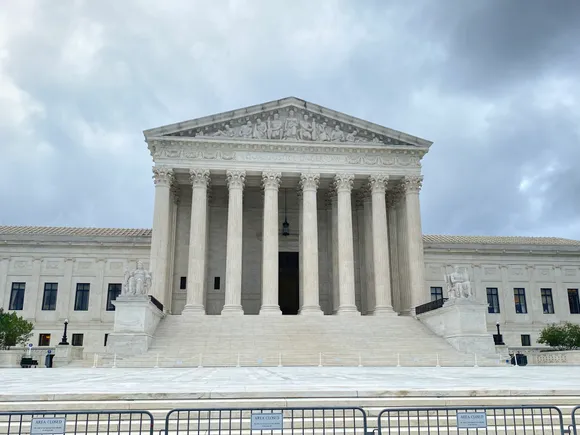Dive Brief:
- A New Mexico-based movie theater company “mandatorily retired” a 72-year-old worker during a staff-wide reduction-in-force and denied him healthcare benefits after the age of 65, according to a complaint filed Friday by the U.S. Equal Employment Opportunity Commission.
- Allen Theatres, Inc., violated the Age Discrimination in Employment Act by terminating the worker, a town manager, after 30 years of employment and replacing him with a 30-year-old worker with three years of experience. The theater also maintained a policy of denying workers health insurance once they reached age 65, EEOC said.
- EEOC sought injunctive relief, along with back pay (including loss of employee benefits), front pay, pre-judgment and post-judgment interest and liquidated damages. Allen Theatres did not immediately respond to a request for comment.
Dive Insight:
The Age Discrimination in Employment Act protects workers aged 40 and over from discrimination in any aspect of employment, including hiring, firing, pay, job assignments, promotions, layoffs, training and benefits.
According to EEOC, the theater company’s president testified that his decision to force the worker into retirement was legally allowed because he was “normal retirement age.” He also testified that he believed a man that age “would not like working at night,” despite the worker not making any comments to that effect, EEOC said.
Pressuring workers to retire — or attempting to force a retirement through a termination — is a common way companies run afoul of the ADEA. For example, Covenant Woods Senior Living, a Georgia retirement community, allegedly fired a 78-year-old receptionist after inquiring about her retirement plans and asking why she hadn’t yet retired, according to a similar EEOC lawsuit filed in February. Covenant Woods settled that case in April for $78,000.
Companies are also barred from denying benefits to older employees based on their age — a protection added to the ADEA through the Older Workers Benefit Protection Act of 1990.
“Congress recognized that the cost of providing certain benefits to older workers is greater than the cost of providing those same benefits to younger workers, and that those greater costs might create a disincentive to hire older workers,” EEOC explained in an age discrimination fact sheet. “In limited circumstances, an employer may be permitted to reduce certain benefits based on age, as long as the cost the employer incurs to provide those benefits to older workers is no less than the cost of providing the benefits to younger workers.”






Leave a Reply